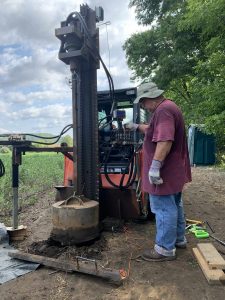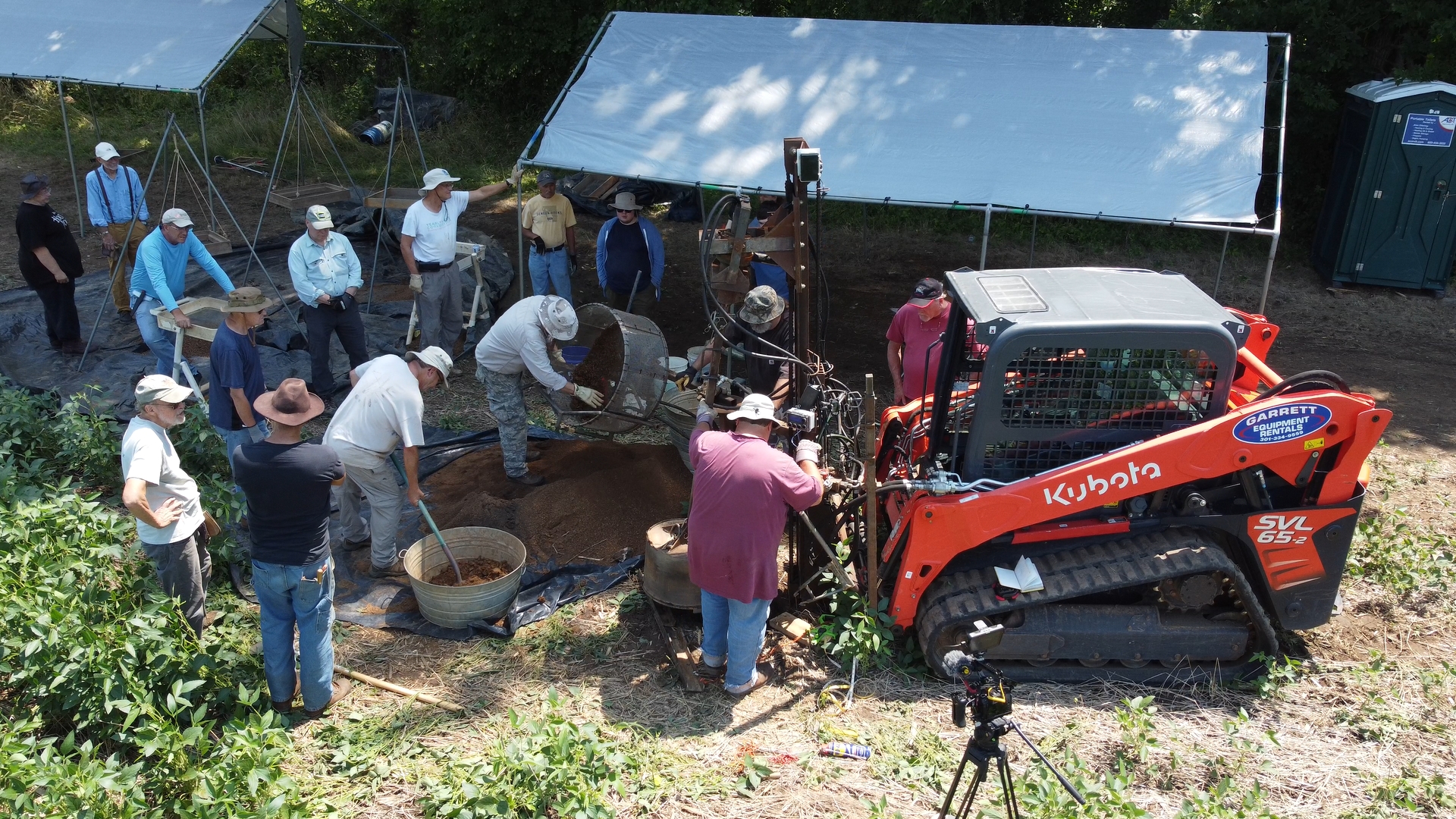
Brian Fritz operates the PaleoDigger, a machine he invented, to test samples near the Potomac River at the Barton Village site. Photo Credit: Kelley Berliner / TAC
EAST—A field crew led by Maryland State terrestrial archaeologist Zachary Singer, University of Towson archaeologist Robert Wall, and PaleoDigger inventor and archaeologist Brian Fritz, spent a week this summer working at the Barton Village site, owned and protected by the Conservancy since 2000. The property, located in western Maryland, was researched for several years in the 1990s and early 2000s under the direction of Bob Wall, who ran several field schools at the site. Wall’s work focused on some of the later Native American occupations, including at least three distinct Late Woodland into Contact Period villages.
Wall’s later work focused on excavating deep test units to explore early Archaic and possible Paleoindian deposits at the site, but the labor involved in digging such a deep unit—2 meters and deeper below floodplain sediments—was extremely intensive and time-consuming. Fritz’s PaleoDigger, a 2-foot wide metal auger that can be run by a front-end loader, offered an alternative. Singer, who had previously worked with Wall to study the artifacts from the site, assembled a research plan based on prior knowledge to strategically sample deposits along the river using the PaleoDigger.
This effort was supported by volunteers with the Archaeological Society of Maryland and resulted in the discovery of several new concentrations of early Archaic period material; some samples are possibly older. These concentrations consist of lithic artifacts related to tool production, as well as a feature sampled for radiocarbon dating. Additionally, archaeologist David Leslie and soil scientist John Wah visited the site to take soil core samples to assist in better understanding the stratigraphy. The findings may help researchers target specific areas for future study at the preserve.
Related:
- A virtual lecture with archaeologists Zachary Singer and Robert Wall talking about what was found during the excavation at Barton is scheduled for Wednesday, March 12, 2025. Watch our website and social media for information on how to attend.
- The following virtual lecture about the PaleoDigger was recorded in October 2024.




